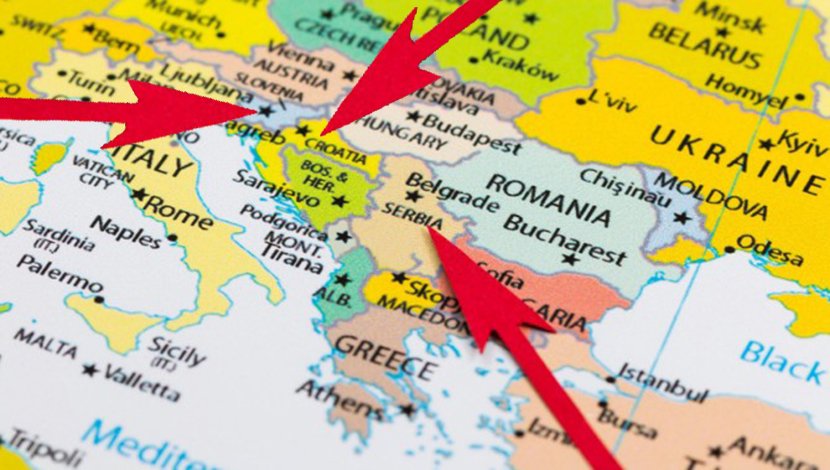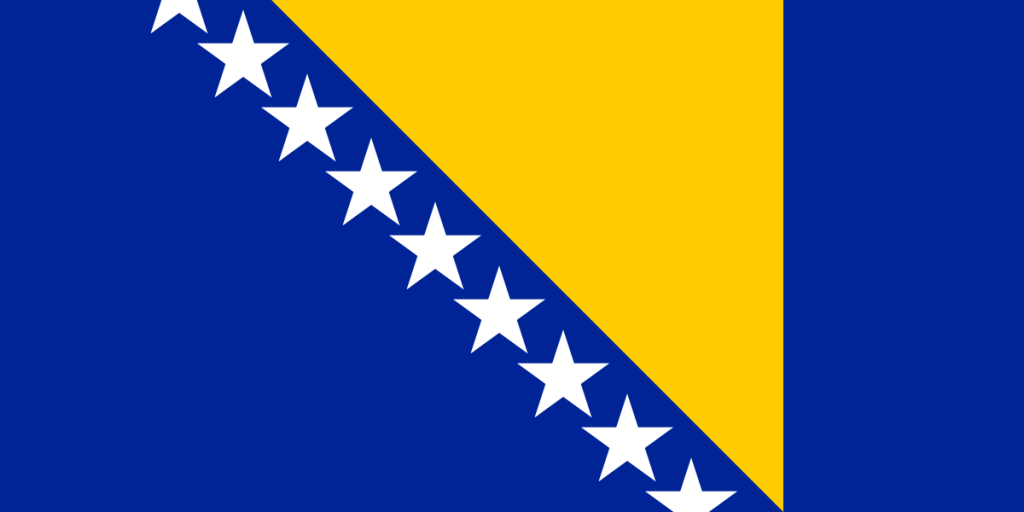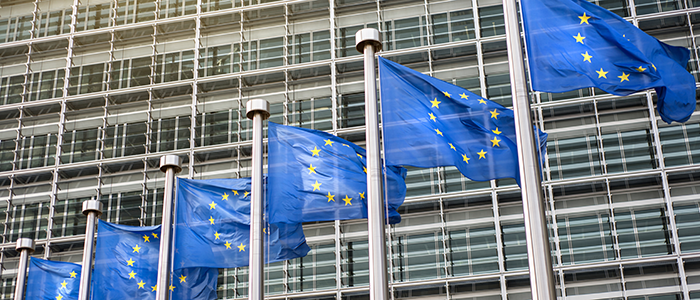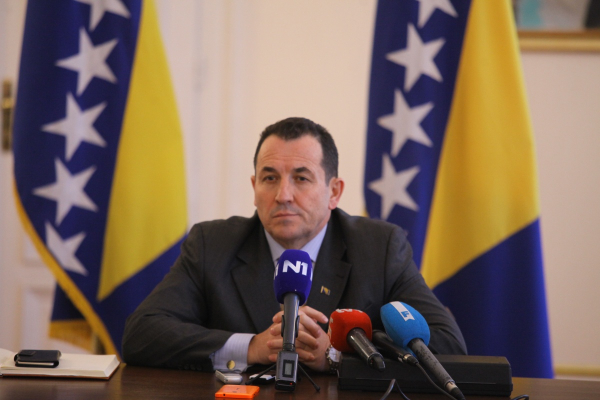Author: Prof. dr Selmo Cikotić, former Minister of Defence of Bosnia and Hercegovina, member of advisory board of Council for strategic policy
Global changes and challenges
Globalization has reshaped the world order and brought a number of changes and circumstances that the world hadn’t experienced in its previous history.
New security patterns made a whole spectrum of mutually linked and suddenly appearing, very often unexpected, challenges that no single state may address alone, and every single country depends on other countries and organizations in providing its own security. Therefore it is safe to argue that interdependence has become one of the major features of international relations and international security of the modern times.
The speed of the world’s changes is accelerating – the world is changing faster and faster and the tempo of the overall social change will continue to grow, and that growth, due to the constant acceleration, is not going to be linear but exponential.
The progress of science and technology is bringing about a new realm, creating new possibilities for the mankind, and, at the same time, creating a number of new challenges and threats the world needs to cope with.
Along with the previously mentioned changes, and with other changes and
developments, the redistribution of the position of the global domains of power (economic, military, technological and cultural) is taking place. At the end of the 20th century these domains of power moved from the soil of Europe to the Pacific region, thus making new centers of gravity and new areas of influence within international relations and the world order.
We Europeans ought to admit that Eurocentric world, as we used to know it for a long period of modern history, doesn’t exist any longer. The century of Atlantic is behind us and a century of Pacific, with an increased role of Indian ocean, is ahead of us. The Euro-Atlantic trends and processes in a number of areas are being substituted by Euro-Asian ones. Even the USA which, at least during the last century, used to be over- Atlantic oriented is no predominately over-Pacific oriented.
A certain strong global influence and presence of Europe still exist, and will continue to exist, because of some historic, traditional and pragmatic reasons. Many developing states of the world are still dependent upon their old European metropolis and centers of influence, and keys to solution of some world troubles are still in European capitals due to the previous involvement and presence of some European states in those areas.
At the same time we need to accept the fact that European contribution to global affairs is in constant decline. For illustration we may just have a look at some economic and demographic trends – at the end of World War II, Europe made more than a half of the world GDP and participated with more than 25% into the world population. Today Europe makes less than 25% of the world GDP and less than 10% of the world population.
The position and the role of the Balkans
The Balkans has got a specific geo-political, geo-economic and geo-cultural position. It links Occident with Orient, the Mediterranean with the Central Europe, and Adriatic and Black Sea regions. The Balkans is covered with a number of transition routes of peoples, ideas, goods, communications, energies and other values. It is a meeting place of different cultures and different civilizations. In a specific way, it’s a meeting place of different periods of history.

Winston Churchill used to argue the Balkans produced more history than it was capable of consuming. Still, the influence of history is very strong, not just in relation to the past, but more often in relationship with the present day and the future of the region. Needless to say, the interpretation of the common history very much differs, from state to state, from one ethnic group to the other ones. This attitude towards history reflects similar situation towards many other human, ethical, political, cultural, religious and other values and principles.
The Balkans is commonly perceived as a periphery and a burthen to Europe. The Balkans has also received a global meaning, symbolizing instability, state, ethnic and religious clashes and conflicts.
Some two decades ago Zbignew Brzezinski coined the term ‘Global Balkans’ which was related to the Middle East and North of Africa region predicting instabilities, clashes, crisis, wars and changes of governments within the states that are situated in this region.
The attitude of Europe towards the Balkans
The Balkans shouldn’t necessarily be the periphery and a burthen to Europe in the future.
Europe may positively contribute to the Balkans and influence its better state to state cooperation in the Region, affirmation of some European values and standards, help transformation and reform processes leading all the Balkans and its individual states towards the Euro-Atlantic family of developed, democratic and progressive states.
Such an influence won’t just help every single state of the Balkans, bat the Balkans as a whole, the Balkans as a part of Europe. By doing so the Europe will Europeanized the Balkans. The Balkans then, instead of being a burthen and periphery may become a chance for Europe, a gateway for many Asian states and economies, provided the diversity of the Balkans is transformed into mutual cooperation – across the Region and with a number of big economies the individual Balkans states have already good cooperation with.
If Europe help the Balkans to elevate the quality and functionality of its states, the mutual cooperation of the states to a civilized level, the benefits will be present to the Balkans itself, to the whole Europe but also to many Asian states the Balkans may help providing better cooperation with.
If this positive presence and influence of Europe to the Balkans (Europeanization of the Balkans) doesn’t happen, it is almost certain the reverse process of Balkanization of Europe will take place.
The role of Bosnia and Herzegovina in the Balkans
Even though almost every single Balkan state tends to believe it has got the central and most important position in the region, for a number of historic, geopolitical, security and other reasons it is possible to argue that Bosnia and Herzegovina plays a central and most important position for the stability and the peace of the Balkans and Western Balkans in particular.
Bosnia and Herzegovina experienced many wars in its recent history. All of them were imported from the neighbors and there were no single example the state of Bosnia and Herzegovina attacked any of the adjacent countries.
The last war in Bosnia and Herzegovina from ’92 to ’95 was a good example.
Unfortunately, the reasons that triggered that last war are still present, and the neighboring states still attempt to achieve their war time goals. Clausewitz used to argue ‘that war is nothing else but extension of the politics by other means’. Nowadays in Bosnia and Herzegovina we have go Clausewitz upside down – many politics in the country are just extension of the war by other means. Therefore the best qualification for the existing peace in Bosnia and Herzegovina would be a Cold Peace. It is an absence of war but it doesn’t provide the prerequisites for needed and expected progress necessary to take the country even to the position of the average Balkans level of internal development and integration into the international relations and architecture.

If Bosnia and Herzegovina is not developed, stable and self sustainable, it will continue to attract appetites of the surrounding states which makes the instability and uncertainty of the whole Region. In other words, if Bosnia and Herzegovina continues to backward, it may produce additional weaknesses and tensions within the country, which will cause troubles of the Region, as it happened in a number of previous occasions. Serbia and Croatia will probable try to make one more attempt of realization of their long-lasting ideologies, by which they claim parts of Bosnia and Herzegovina and threaten the further existence of the state in its current borders.
The lack of expected progress within Bosnia and Herzegovina and the whole Region will certainly make instability and uncertainty, resulting int demographic, political, economic and other negative consequences. The young, educated, potent and capable people will continue to flee from the Region. The state and status of these young, educated and promising people are a good illustration of the future of the Region – if they continue to migrate towards developed countries of the West and contribute the development of already developed world, they will further diminish the chances for the progress and development of the Region they abandoned.
Culturally, Bosnia and Herzegovina represent an interesting part of Europe, and the world. Being positioned between civilizational fault lines, it makes the most western part of the Orthodox area of Europe, the most eastern part of the Catholic Europe, the most northern part of Europe inhabited by Muslims. Apart from some other communities an societies living in Bosnia and Herzegovina, the tradition and presence of the Jewish community is very relevant. Overlap of these cultures make an interesting amalgam of the social and political fabric of Bosnia and Herzegovina.
Muslims in Bosnia and Herzegovina are a valuable partner to some influential Islamic states of the wider region, even the whole world. More importantly, there exist an underneath pressure of the religious societies from Turkey, Iran and Saudi Arabia upon the Islamic community of Bosnia and Herzegovina. It’s a fight for the prevailing dominance over the Bosnian Muslims.
The Muslims of Bosnia and Herzegovina do a lot of efforts to maintain and protect their tolerant, European style of Islam. Otherwise, if they fail to protect the practice and the manifestations of the Islam that for centuries lived in harmony with other religions of the region and Europe, we may witness unpleasant and unexpected manifestations of Islam in this turbulent part of the Balkans and Europe.
The same rule is applicable for the other religions and cultural influences – if we want to prevent instabilities and challenges on one, and increase chances and progress on the other side, we need to work in harmony with each other.
We need to comprehend a reality that there is no comfort for one state or ethnic group in the region if it makes other states or ethnic groups uncomfortable or uncertain. We need to have an attitude and readiness to care for each other and each other fears, and invest will, energy, patience and time as long as it take, until we reach mutually and simultaneously acceptable solutions, to a number of issues of common interest.
To change the current atmosphere and relationships in the Region, it takes the change of the mindset and behavioral patterns – we can’t fight dark by putting more dark into the Region, we certainly will not make a victory over hatred if we put more hatred into the existing relationships. We badly need light and human understanding and empathy if we sincerely want to see the up warding of the Balkans.
Constructive role of Austria
An old wisdom suggest that the life is lived ahead but it’s understood looking backwards. If we combine an historic prospective with present day and likely future developments in context of relationship of the Balkans and Europe, we may find a lot of arguments to believe that Austria, as a single state, for a number of historic and present reasons, may provide very positive influence in developing and strengthening that relationship, and, also, in improving the relationships of the states in the Western Balkans.
Austria could be constructive and an effective proponent of European proactive role into the Western Balkans. Austria, apart from its historic presence and knowledge of the region has got a large ethnic communities of all Western Balkans states in its territory and thus a strong link with each single state from the Region and the Region as a whole.
Among all states of the Region, Austria is perceived as a friendly state, well developed, and influential within European working mechanisms – political, economic, cultural, technological, scientific and others. Based on this assumption Austria may positively influence processes of development of state structures and society communities of all countries of the Region.
Austria alone shouldn’t be present and industrious into the progress of the Western Balkans. For, its an interest of the whole Europe and should be an endeavor of the whole Europe. Austria may have a pivotal and more proactive role if it’s supported and backed by other European states and the EU as an organization. If such an cooperation is established the Western Balkans states will certainly be motivated to reenergize and rejuvenate their efforts of internal reforms and international integration.
If this doesn’t happen, it will result with some negative consequences within the Region on one and Europe on the other side. Stability of Europe can’t be achieved without the stability of the Western Balkans.
Concluding remarks
The future of the Balkans is very much dependent upon the influence of Europe, on one side, and upon the development of the processes on it own side.

Europe may potentially influence the future of the Western Balkans by stimulating positive processes in the Region, in each single state of the peninsula and by encouraging the cooperation between the states and their integration into Euro-Atlantic family of developed and progressive nations.
In simple words, by applying standards and principles which made Europe powerful and great onto the ongoing processes of the Balkans, Europe may Europeanize the Balkans. Otherwise, the Balkans will Balkanize Europe.
All positive actions of Europe into the Balkans may change the overall situation of the Region into much more positive one, making a chance for the future, not only to the Balkans, but for the whole Europe, as well.
Working with such an approach and acting towards such an end, Europe won’t make a spending but an investment into the Balkans.

